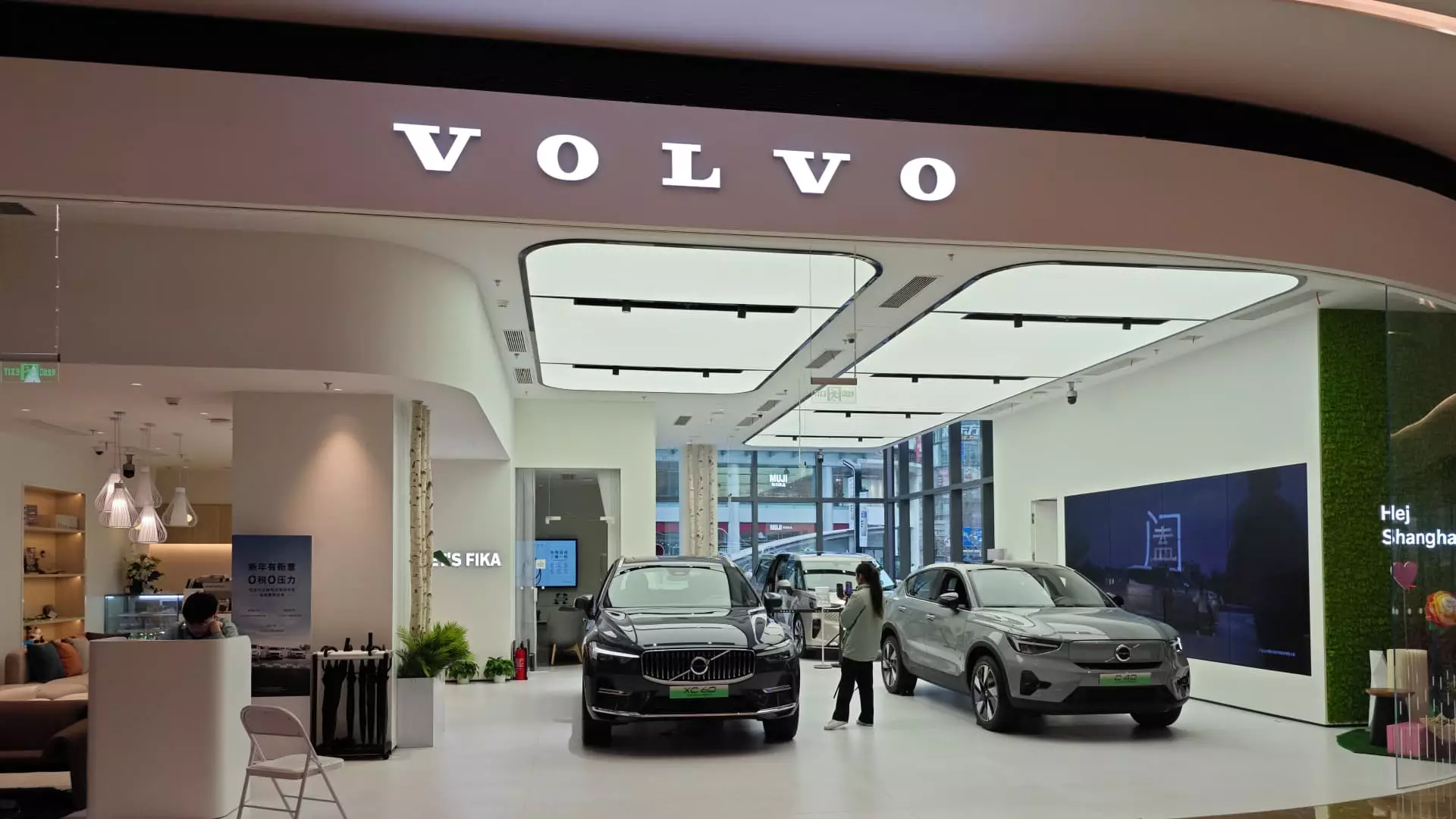Volvo Cars experienced a significant increase in its annual operating profit for the second quarter, leading to a notable rise in the company’s shares. The core operating profit for the quarter reached 8.2 billion Swedish kronor, representing a 28% surge from the previous year. This achievement marks the highest figure for one individual quarter in the history of the carmaker. The impressive growth in profit can be attributed to various factors, such as increased global retail sales and a rise in sales of electric and hybrid vehicles.
Volvo Cars reported a 15% year-on-year increase in global retail sales during the quarter, reaching a total of 205,400 cars. The company highlighted that the boost in sales was driven by a significant increase in the demand for hybrid and fully electric cars. In fact, electric vehicles and hybrid models accounted for 48% of the company’s total global sales for the quarter. This shift towards sustainable and environmentally-friendly vehicles reflects Volvo’s commitment to addressing the evolving needs of consumers in the automotive market.
As competition in the electric vehicle market intensifies, Volvo Cars has been focusing on expanding its presence in the EV sector. With a growing number of Chinese auto manufacturers entering the market, Volvo has doubled down on its efforts to capture a larger share of the segment. The company’s emphasis on electric vehicles aligns with the global trend towards sustainable transportation solutions and reinforces Volvo’s position as a forward-thinking automaker.
Challenges and Opportunities
Despite its success in increasing operating profit and global sales, Volvo Cars faced a slight revenue decline in the second quarter. The company’s revenue dipped from 102.2 billion Swedish kronor to 101.5 billion Swedish kronor compared to the same period last year. Nevertheless, Volvo’s CEO, Jim Rowan, remains optimistic about the company’s performance, citing a strong second quarter with record underlying profitability. The ability to navigate a complex geopolitical and economic environment demonstrates Volvo’s resilience and adaptability in the face of challenges.
Volvo Cars’ rise in annual operating profit reflects its strategic focus on sustainable mobility solutions and adapting to changing market dynamics. The company’s shift towards electric vehicles and hybrid models has driven growth in global sales, contributing to its overall success in the second quarter. Despite facing challenges such as revenue declines and increased competition, Volvo Cars’ commitment to innovation and value creation positions it as a key player in the automotive industry.

